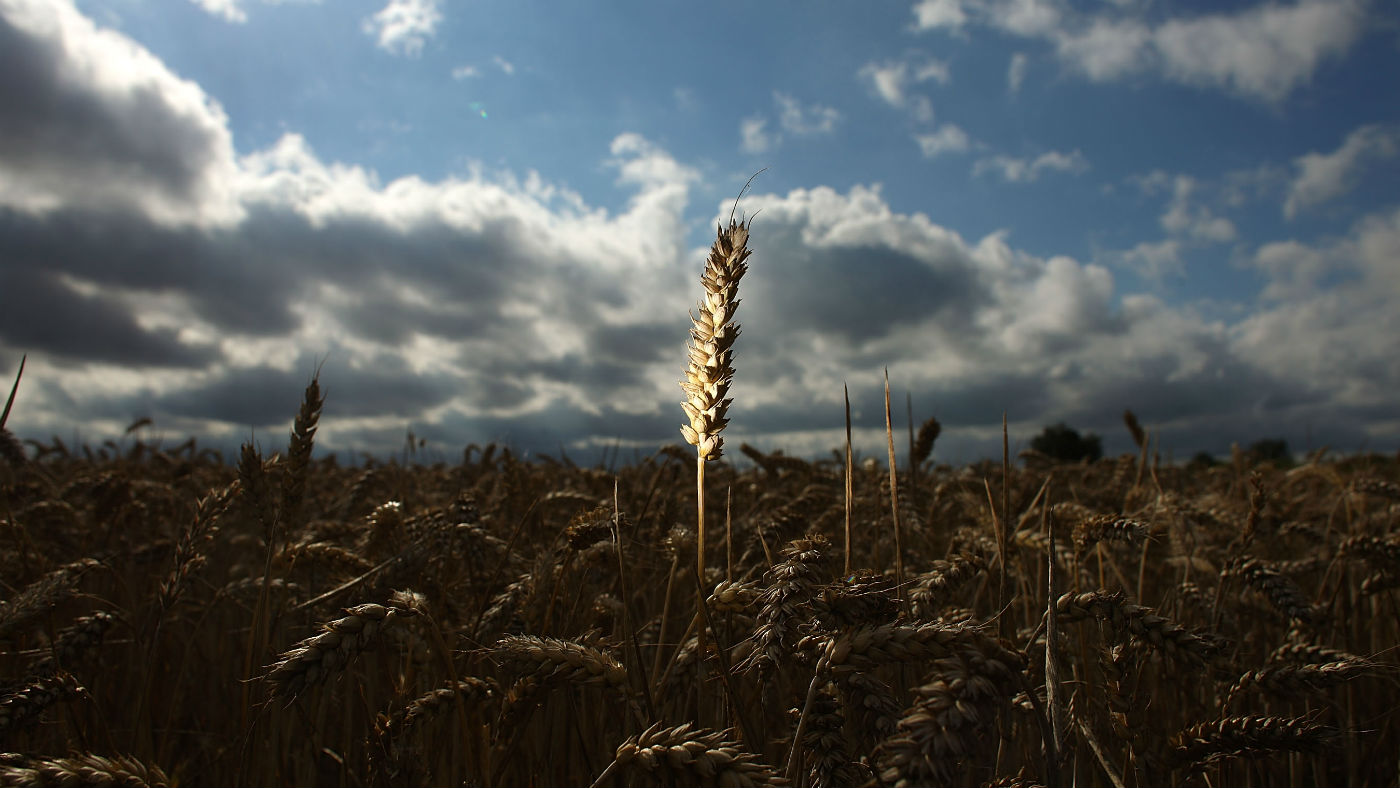UK heatwave to hit food supplies
Industry lobby warns high temperatures could worsen Brexit disruption and hit stockpiling efforts

A free daily email with the biggest news stories of the day – and the best features from TheWeek.com
You are now subscribed
Your newsletter sign-up was successful
Britain’s record-breaking heatwave is set to restrict food supplies later in the year, just as the government prepares to stockpile food in the even of a ‘no-deal’ Brexit.
Ian Wright, director general of the Food and Drink Federation, the main industry lobby group, said Britain’s long spell of hot, dry weather would start to affect supplies in the autumn, and that if Britain left the EU next March without a deal, disruption at customs and border crossings would have an impact on food imports.
“We’re going through the most extraordinary summer and we’re already seeing farmers struggling with crops, with feed for ruminants [cattle and sheep],” Wright told BBC radio. “There are vegetable shortages because there hasn’t been enough rain.”
The Week
Escape your echo chamber. Get the facts behind the news, plus analysis from multiple perspectives.

Sign up for The Week's Free Newsletters
From our morning news briefing to a weekly Good News Newsletter, get the best of The Week delivered directly to your inbox.
From our morning news briefing to a weekly Good News Newsletter, get the best of The Week delivered directly to your inbox.
His warning came a day after the new Brexit Secretary, Dominic Raab, told MPs the government was putting plans in motion to ensure “adequate food” supplies would continue if Britain crashes out of the EU without a new trade agreement.
About 40% of the food Britons consume is imported, says Reuters, “the vast majority of it from or via the EU.”
Amid continued uncertainty about the state of Brexit negotiations, many businesses will seek to get goods across the border before the 29 March exit date to avoid disruption from customs changes. Some will also plan to buy further in advance so they are less affected by currency fluctuations.
Earlier this year the British Retail Consortium said a no-deal Brexit would clog up food supplies, raise prices and throw retailers out of business. Wright echoed that warning and said a hard Brexit would inevitably lead to some food shortages.
A free daily email with the biggest news stories of the day – and the best features from TheWeek.com
“We saw just a few weeks ago with the carbon dioxide shortage how a random shock event can effect supply and we would see that again,” he said, adding “our shoppers would not see no food but they would see shortages.”